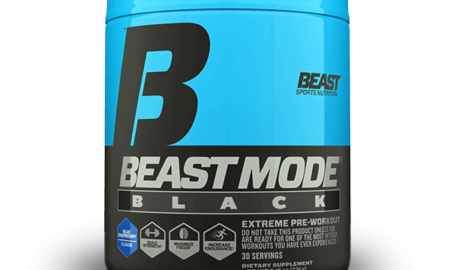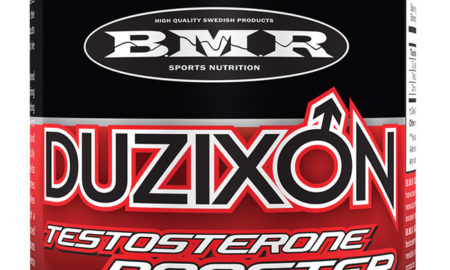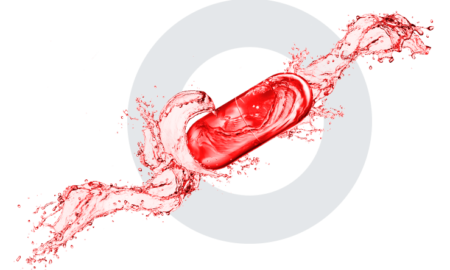In late June 2010, two studies were released, the results of which were widely reported in the popular health-news media. Both related to testosterone-replacement therapy for older men known to be clinically deficient in the hormone.
Reports differ as to just how many men over age 40 have low testosterone. The figures range from only 5 percent to as much as 50 percent. On the other hand, there is no question that testosterone counts begin to decline past age 40 in all men. Whether that presents health risks depends on just how low the counts go. Many doctors believe that a lowering of testosterone is a natural part of the aging process. The problem is, a lack of testosterone can cause a multitude of health problems for men—no sex drive, loss of muscle and bone, decline in cognitive ability and cardiovascular problems.
That last symptom—cardiovascular problems—is what makes the two new studies perplexing. Released at the 92nd annual meeting of the Endocrine Society, a convocation of endocrinologists, or hormone specialists, the first study tracked 697 men aged 65 or over to see if there was any relation between their testosterone counts and cardiovascular disease. A follow-up after four years showed that 100 subjects, or about 14 percent, had experienced cardiovascular complications, mainly heart attacks. After adjusting for such cardiovascular risk factors as high blood cholesterol and smoking, the researchers found that the subjects highest in testosterone were at the greatest risk for cardiovascular disease. Specifically, men with a total testosterone count of 495—about midpoint on the normal testosterone scale—had twice the risk of cardiovascular disease as men with a count of 308.
The second study was published in the prestigious New England Journal of Medicine.1 It featured 209 men with an average age of 74, all of whom were very low in testosterone. Importantly, they all had been diagnosed with a serious illness, including high blood pressure, diabetes, elevated blood lipids and/or obesity. All also had reduced mobility—that is, the ability to walk and move freely. The premise of the study was that giving testosterone to men clearly deficient in it would increase muscle strength and thereby also increase mobility. That makes sense; numerous studies have shown a definite relation between older men’s lower testosterone and poor mobility, defined by researchers as having difficulty in walking two blocks on a level surface or climbing 10 steps.
Once daily for six months the men got either a placebo or a transdermal form of testosterone, which means a hormone cream was applied to the skin. Curiously, the hormone dosage was two to three times higher than normal, ostensibly to boost total testosterone. A total of 23 participants in the testosterone group and five in the placebo group had an adverse cardiovascular response. The men in the testosterone group, however, did show strength gains as judged by leg press and bench press strength and the ability to climb stairs while carrying a load. Based on those results, the authors, although admitting that the sample of subjects was small, advised caution to doctors who prescribe testosterone to older men.
Many doctors are already reluctant to prescribe testosterone to men deficient in it because of unfounded fears about the link between testosterone and prostate cancer. Well, as I noted in a recent IRON MAN feature (“The Big Myth: Testosterone and Prostate Cancer,” February and March ’10], the notion that normal counts of testosterone help bring on prostate cancer is not scientifically accurate. Still, these two new studies are likely to make many doctors even more reluctant to prescribe testosterone to men who desperately need hormone-replacement therapy to improve their quality of life.
There are several additional factors to consider with these studies. The NEJM study didn’t monitor the subjects’ estrogen. That’s significant because they were not only deficient in testosterone but were also obese, a condition that suggests an imbalance between estrogen and testosterone. Aromatase, an enzyme that converts testosterone to estrogen, is found in higher amounts in bodyfat. The more estrogen older men have in relation to testosterone, the more likely adverse cardiovascular effects will show up—for example, increased risk of clotting in the coronary arteries, which feed the heart with blood. Most heart attacks occur when a coronary artery is blocked by a clot in an artery already narrowed by atherosclerosis. A high dose of testosterone in older men who already have atherosclerosis could increase the activity of aromatase in fat tissue. That would exacerbate the clotting problem and could well explain the cardiovascular problems observed in the study.
The findings of the study reported to the Endocrine Society are more problematic because the subjects got no testosterone. Instead, men with the highest levels of testosterone were said to have experienced twice the rate of adverse cardiovascular events. That differs from the preponderance of studies published in the medical literature showing the opposite—that having low testosterone is a cardiovascular risk factor.
How exactly does being low in testosterone put a man at risk for cardiovascular disease? Younger women have low rates of cardiovascular disease, a situation often attributed to the greater presence of estrogen in their bodies. Estrogen does offer women some benefits. It helps maintain strong measures of high-density lipoprotein, or HDL, the kind of cholesterol that helps guard against cardiovascular disease. In addition, estrogen maintains blood vessel concentrations of nitric oxide, which helps keep blood vessels elastic and prevent high blood pressure, a major risk factor for stroke and heart attack. In men normal measures of estrogen are thought to provide some cardiovascular benefits, but when the balance of testosterone to estrogen favors the latter, the benefits decline and the risks become dominant.
Recent studies show a strong link between the metabolic syndrome and low testosterone in men. The metabolic syndrome includes a cluster of symptoms—like high blood pressure, high blood fats and elevated blood glucose levels—that are all related to cardiovascular disease and diabetes. When men with the metabolic syndrome who are also deficient in testosterone—and they tend to be—are given testosterone therapy, most of the metabolic syndrome symptoms abate. One reason is that testosterone favors the loss of visceral, or deep-lying, abdominal fat, the kind that’s considered the most health threatening and is linked to both cardiovascular disease and diabetes.
Other studies link strokes to low testosterone, which causes the thickness of the lining of the carotid artery in the neck to increase, a harbinger of stroke. Atherosclerosis is now known to be an inflammatory disease, and testosterone helps suppresses the release of cytokines, the inflammatory agents that encourage it. Indeed, prostate cancer patients who receive androgen-ablative therapy—drugs that suppress testosterone to shrink prostate tumors—show increased incidence of cardiovascular disease, which in some cases kills them before the cancer does.
A lack of sufficient testosterone also adversely affects blood fats. If you’re low in testosterone, your blood triglycerides, plus total cholesterol and low-density liproprotein—the bad cholesterol—rise, while protective HDL diminishes. Blood pressure increases with low testosterone, and there’s a greater tendency toward internal clotting, the cornerstone of strokes and heart attacks.
As men age and get fatter, they experience increased aromatase activity. Because much of the aromatase enzyme resides in fat, the more fat you have, the greater the activity of aromatase. Testosterone helps lower bodyfat by encouraging developing stem cells that could turn into either fat or muscle cells to take the muscle route. Testosterone also inhibits an enzyme that boosts fat uptake into fat cells while upping the activity of beta-adrenergic receptors linked to fat burning rather than storage. One of the suspected reasons the older men on testosterone had higher rates of cardiovascular disease was that it may have caused sodium and water retention, which raises blood pressure. Yet most studies of testosterone replacement in men have demonstrated either a reduction in or no effect on blood pressure. In addition, testosterone, like estrogen in women, maintains blood vessel elasticity, which would help offset atherosclerosis.
Back in 1942 testosterone was suggested to treat angina. One way it does that is by helping dilate coronary arteries. It has a natural calcium-channel-blocking activity, which helps relax tight blood vessels. Indeed, a number of calcium-channel-blocking drugs are prescribed to treat high blood pressure.
So the notion that normal testosterone counts are implicated in cardiovascular disease is just not true. If anything, it’s the reverse: Being low in testosterone predisposes men to cardiovascular disease. Not a month goes by without another study finding a relation between low testosterone and increased mortality from all causes in men. Much of the time the cause of death is related to cardiovascular disease.
An insidious scenario may also be associated with the publication of negative testosterone studies. The pharmaceuticals industry has been quietly pushing the next generation of testosterone therapy—ironically involving drugs not based on testosterone. Known as SARMs, which stands for selective androgen receptor modulators, those drugs interact with the androgen cell receptor, as does testosterone, yet show few of the possible negative side effects linked to testosterone. Most important, SARMs allegedly won’t affect the prostate gland, thereby eliminating the primary fear of doctors who refuse to prescribe testosterone.
SARMs will, however, reproduce much of the anabolic effects of testosterone. It is of immense benefit to the drug companies that will be marketing SARMs in the near future to start discrediting testosterone now. They did it years ago with testosterone injections, citing the injections’ inconvenience and the brief increase of testosterone to a superphysiological degree, followed by a gradual decline. Topical forms of testosterone became the preferred form because they offered a smoother, more stable release. Now, though, the NEJM study demonizes even innocuous topical forms of T therapy. I hate to sound like Fox Mulder from “The X-Files,” but I suspect something is afoot, since many of the researchers who conducted the study are also on the payrolls of major drug companies.
Another thing to consider: One of the most common side effects of long-term high-dose anabolic steroid use is an increase in cardiovascular risk factors, such as higher blood pressure, low HDL and subtle damage to heart muscle cells. Those risk factors—which are themselves rare and often revert to normal when the person stops using steroids—bear no relation to testosterone-replacement therapy, in which the primary goal is to produce normal counts of testosterone in men shown to be deficient in it.
Editor’s note: Jerry Brainum has been an exercise and nutrition researcher and journalist for more than 25 years. He’s worked with pro bodybuilders as well as many Olympic and professional athletes. To get his new e-book, Natural Anabolics—Nutrients, Compounds and Supplements That Can Accelerate Muscle Growth Without Drugs, visit www.JerryBrainum.com. IM
1 Basaria, S., et al. (2010). Adverse events associated with testosterone administration. NEJM. In press.




















You must be logged in to post a comment Login